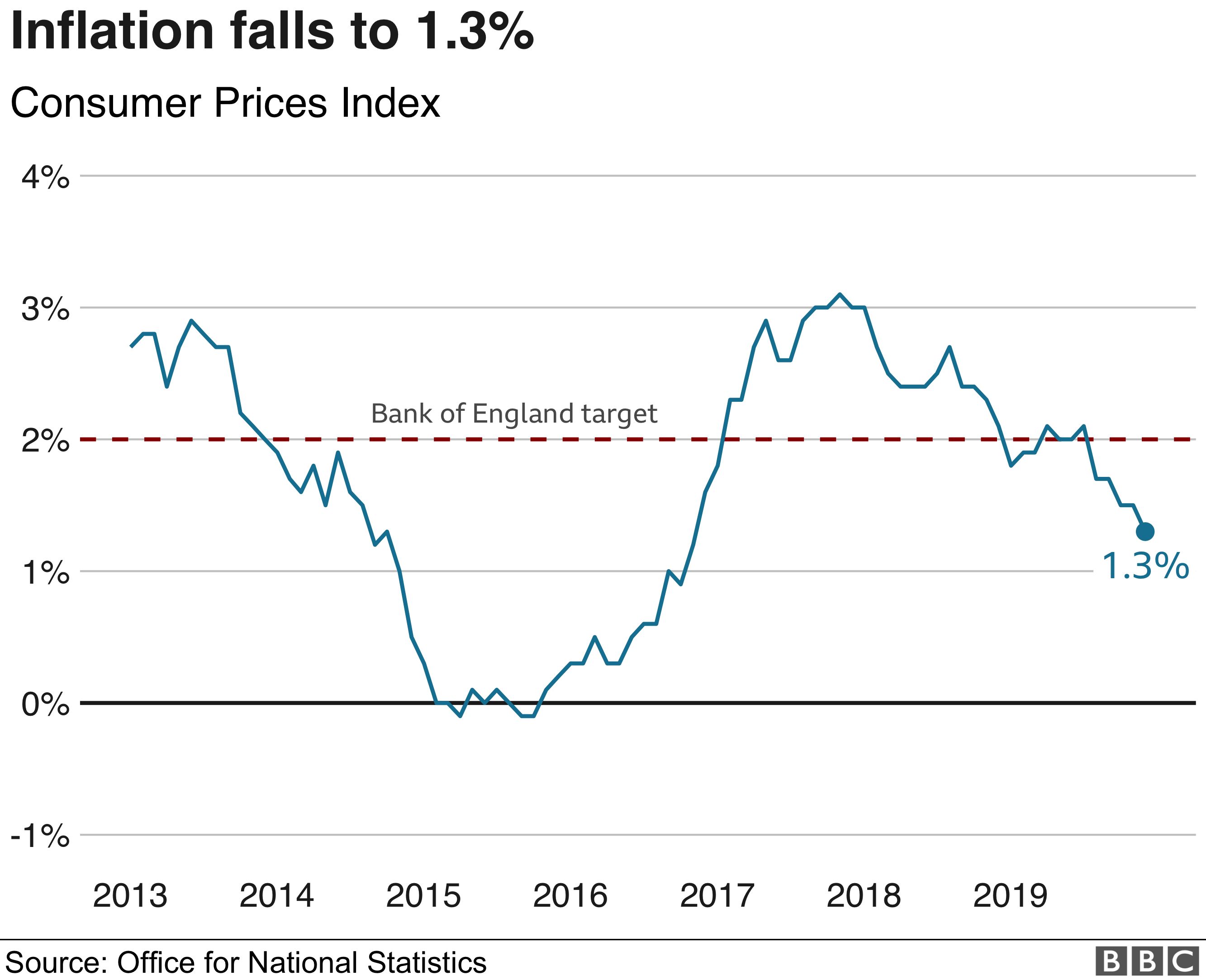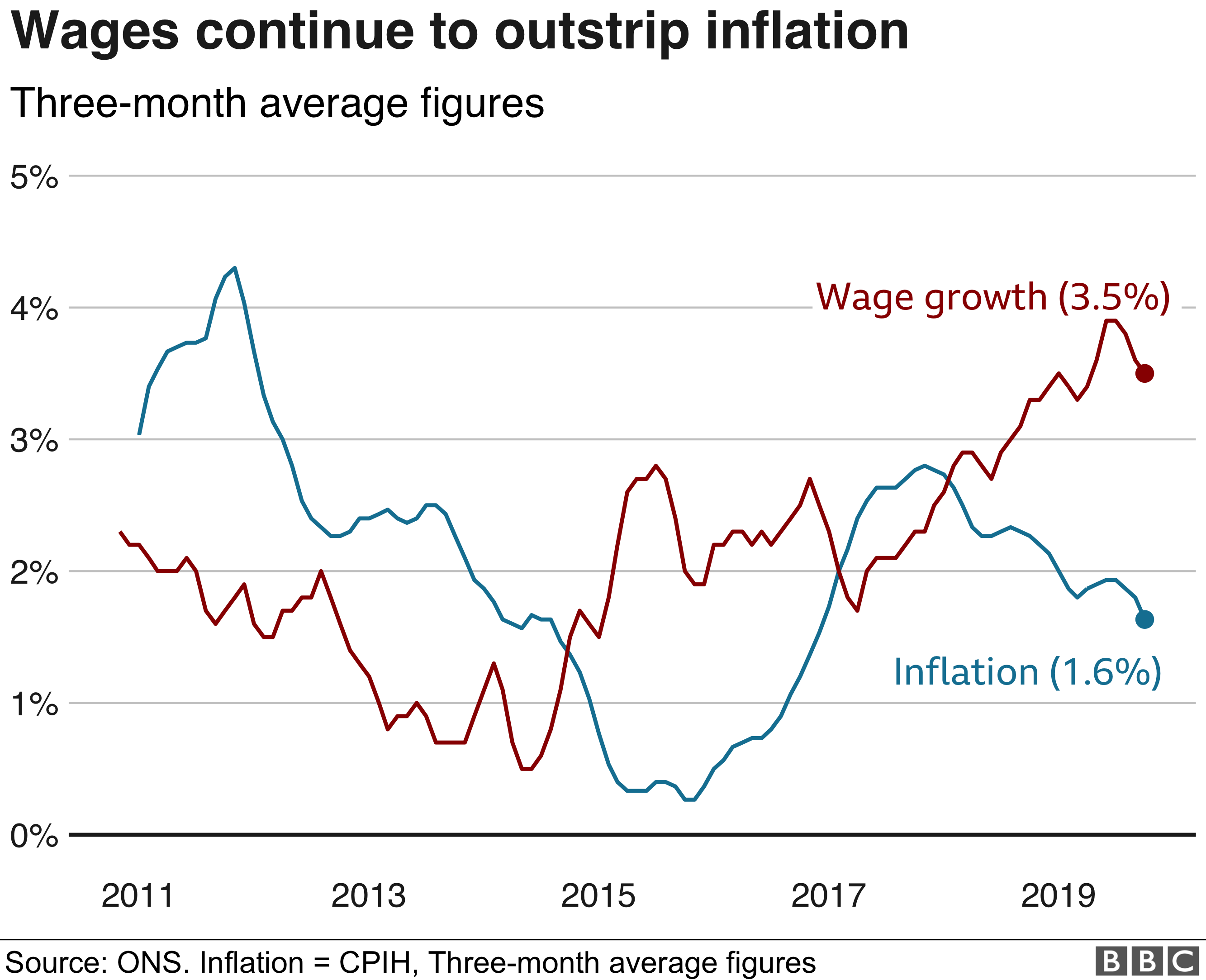 Image copyright Getty Images
Image copyright Getty Images The UK’s inflation rate was up to its least expensive for more than 3 years in December, increasing speculation that rate of interest might be cut.
The rate dropped to 1.3% last month , below 1.5% in November, partially due to a fall in the rate of females’s clothing and hotel space expenses.
December’s inflation rate was the most affordable considering that November 2016.
Analysts stated it raised the possibilities of a rate cut, with inflation listed below the Bank of England’s target of 2%.
“Very soft UK inflation information for December leaves the door broad open for a Bank of England rate cut on 30 January,” stated Melissa Davies, a financial expert at stock broker Redburn.
The Bank’s primary rate of interest is utilized by banks and other lending institutions who set loaning expenses.
It impacts whatever from home mortgages to service loans and has a huge result on the financial resources of business and people.



City traders who invest their working lives attempting to prepare for relocations in rates of interest are encouraged of it today: the Bank of England is most likely to cut the main rates of interest when it satisfies later on this month. Market indications recommend a 60% possibility of it occurring.
Here’s the thinking: at 1.3%, the main procedure of customer rate inflation in the year to December was lower than anticipated and well listed below the 2% target. With the economy hardly growing (even diminishing if you are prepared to count on the main November price quote of a 0.3% contraction) there’s little indication of inflationary pressure in the future.
Granted, there was a sharp increase in the cost of petroleum – a barrel was up 4.9% in the month and 17.4% on the year. In spite of that, manufacturers were still paying somewhat less for their raw products and materials than they were last year.
The presumption has actually been that the November contraction was a short-lived duration of weak point caused by pre-election political unpredictability – which there will be a healing as customers and companies restore a new-found self-confidence to invest and invest.
The danger the MPC will need to compete with is that hoped-for post-election healing does not materialise.

Earlier on Wednesday, Michael Saunders, among the rate setters on the Bank’s Monetary Policy Committee (MPC), repeated his view that loaning expenses ought to be reduced.
“It most likely will be suitable to preserve an expansionary financial policy position and potentially to cut rates even more, in order to decrease dangers of a continual undershoot of the 2% inflation target,” he stated.
Last week, 2 other rate setters and Bank guv Mark Carney likewise recommended that rates might be cut, depending upon how the economy carries out.
On Sunday, MPC member Gertjan Vlieghe informed the Financial Times he would think about choosing a rate cut depending upon how the economy has actually carried out given that the December election.

However, members of the MPC might take the most recent inflation figure with a pinch of salt, stated Samuel Tombs, primary UK economic expert at Pantheon Macroeconomics.
“Half of the decrease in the heading rate was driven by a sharp fall in unstable airline company fares inflation,” he stated.
He anticipates inflation to increase to 1.6% in the very first 3 months of 2020, and this might indicate sufficient MPC members will choose to wait instead of voting to cut rates.
Emma-Lou Montgomery, associate director for individual investing at cash supervisor Fidelity International, stated the inflation information painted a bleaker image for the UK economy than in the past.
“Today’s UK CPI figures merely contribute to the growing sense of anxiousness numerous feel when thinking about the outlook for the UK economy, with the rate of inflation continuing to lag well listed below the Bank of England’s target of 2%.”
A cut would alleviate the financial resources of debtors, however produce a harder environment for savers, she included.
Read more: https://www.bbc.co.uk/news/business-51117888


Recent Comments